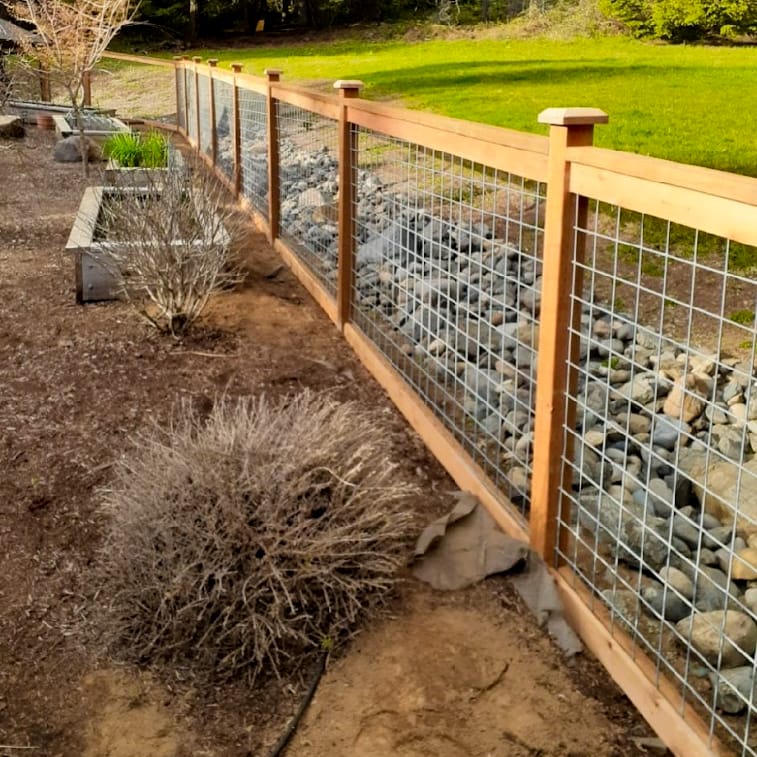All Categories
Featured
What Types of Fence Products Are Readily Available for Residential and Commercial Projects?

When planning to mount a fencing, selecting the appropriate material is essential for satisfying the aesthetic, useful, and financial requirements of your residential property. Whether for property or commercial usage, modern-day fencing options provide a variety of selections to match particular demands. Here's a thorough look at the most common fence materials offered today.
- Timber Secure fencing. Timber is a classic selection for homeowners looking for beauty and convenience. It functions well for personal privacy fencings, attractive designs, and border noting.
Secret Benefits of Wood Secure Fencing:
Aesthetic Flexibility: Can be crafted into different layouts, consisting of lattice, picket, and board-on-board designs. Affordable: Offers affordability for several tasks, especially smaller sized household ones. Adjustable: Conveniently repainted or tarnished to match a home's exterior. Drawbacks: Calls for regular upkeep, such as sealing and staining, to secure versus weathering and insects.
- Plastic Secure fencing. Vinyl secure fencing has grown in popularity because of its smooth look and marginal upkeep demands. It's a fantastic alternative for both business and domestic rooms.
Advantages:
Resilient and Resilient: Plastic stands up to weather damages, bugs, and fading. Easy Maintenance: A quick wash with soap and water keeps it looking excellent. Stylish Options: Comes in multiple shades and textures, some simulating all-natural timber. Considerations: The first expense is higher, but the long-term savings on upkeep can make it a smart investment.
- Chain-Link Fence. Chain-link fencing is a practical remedy for securing large areas, usually made use of in business, industrial, and entertainment residential or commercial properties.
Benefits:
Price: Among the most economical secure fencing options. Toughness: Stands up to tear and put on, also in hard environments. Visibility: Gives a clear view while keeping security. Disadvantages: Restricted aesthetic appeal and personal privacy unless incorporated with slats or vegetation.
- Aluminum Fencing. Light weight aluminum supplies an innovative look without compromising on longevity. It's especially preferred for decorative or protection functions.
Secret Features:
Rust-Free: Suitable for damp climates or swimming pool units. Low Maintenance: Needs marginal maintenance contrasted to iron or timber. Elegant Look: Commonly made use of to simulate wrought iron without the hefty cost. Factors to consider: Not as strong as steel, making it less suitable for high-security demands.
- Wrought Iron Secure Fencing. Recognized for its classic sophistication and durability, functioned iron is a preferred for upscale buildings.

Advantages:
Stamina and Protection: Difficult to damage or flex, making it perfect for high-security applications. Adjustable Styles: Can be shaped right into complex patterns for an one-of-a-kind appearance. Longevity: With appropriate upkeep, functioned iron can last for decades. Drawbacks: Requires regular upkeep to avoid rust and is among the more expensive fence choices.
- Composite Fencing. Compound fences incorporate timber fibers and plastic for a durable, eco-friendly alternative.
Benefits:
Eco Friendly: Typically made from recycled materials. Low Upkeep: Resistant to rot, bugs, and warping. All-natural Appearance: Simulates the look of timber without the maintenance. Drawbacks: Higher upfront expense contrasted to traditional timber fencing.
- Bamboo Secure fencing. Bamboo is a sustainable and fashionable option, especially for household buildings looking for a natural visual.
Advantages:
Eco-Friendly: Bamboo is sustainable and naturally degradable. One-of-a-kind Appearance: Includes a exotic or Zen-inspired touch. Economical: Frequently less costly than woods. Drawbacks: Much less durable in severe climates or against prolonged direct exposure to dampness.
- Steel Fence. Steel fencing offers exceptional toughness, making it a best option for industrial and industrial needs.
Features:
Sturdy Toughness: Takes care of substantial effects and weather challenges. Customizable Coatings: Powder layer improves its look and long life. Security: Perfect for locations needing boosted protection. Considerations: Greater cost and weight make it much less appropriate for small-scale jobs.
- Masonry or Stone Fencing. For residential or commercial properties seeking a extremely long lasting and permanent choice, rock or stonework fencing is a premium selection.
Advantages:
Ultimate Longevity: Withstands harsh climate and lasts for years. Soundproofing: Blocks noise, making it excellent for city locations. Luxury Aesthetic: Offers a high end look that complements high-end residential properties. Disadvantages: High installment expenses and restricted flexibility in design changes.
Exactly How to Select the Right Product. When selecting a secure fencing material, take into consideration the following factors:
Objective: Do you need safety and security, privacy, or ornamental charm? Budget plan: Some products, like wood and chain-link, are cost-effective, while functioned iron and stone come at a costs. Maintenance: Materials like vinyl and light weight aluminum are easier to maintain, while timber and functioned iron requirement routine care. Climate: Some products, such as bamboo or unattended wood, are much less suitable for extreme climate condition. Final thought. Secure fencing products today offer a vast array of options to suit different budgets, features, and styles. Whether you prioritize longevity, looks, or eco-friendliness, there's a material that will certainly fit your requirements. By collaborating with a professional fence professional, you can explore these choices extensive and guarantee a flawless installation for your household or industrial job.
Latest Posts
Relied On Automobile Fixing in Chicago-- Quality Service, Fair Rates!
Published Feb 24, 25
1 min read
Create a Safe and Beautiful Boundary with Washington Fence
Published Feb 22, 25
1 min read
Enhance Your Residential or Commercial Space with Expert Fencing
Published Feb 20, 25
1 min read
More
Latest Posts
Relied On Automobile Fixing in Chicago-- Quality Service, Fair Rates!
Published Feb 24, 25
1 min read
Create a Safe and Beautiful Boundary with Washington Fence
Published Feb 22, 25
1 min read
Enhance Your Residential or Commercial Space with Expert Fencing
Published Feb 20, 25
1 min read